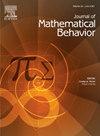An ethnomodel of squid trap “Bubo” in Gigantes Island, Western Visayas, Philippines
IF 1.7
Q3 EDUCATION & EDUCATIONAL RESEARCH
引用次数: 0
Abstract
This study investigated the mathematical model for squid traps (Bubo) as one fishing gear in Gigantes Island, Western Visayas, Philippines. Field notes, video recordings, interviews, and participant observations were conducted from constructing the squid trap (Bubo) to its application. A mutual interrogation approach was utilized as approach to ethnomodeling to present cultural practices of the “manugbubo” and the parallel and beyond of these practices in academic mathematics. The model of a squid trap (Bubo) displays symmetry, congruence, similarity, angles, transversal, triangles, and parallelograms. The angles formed within a squid trap can aid in understanding concepts such as sine, cosine, and tangent, as well as their applications in solving problems related to right triangles. Using this squid trap model in teaching mathematics will encourage teachers and learners to value the richness of mathematical knowledge and appreciate academic mathematics, knowing its presence in their daily activities in their community.
菲律宾西维萨亚斯岛的巨型岛鱿鱼陷阱“Bubo”的民族模型
本文研究了菲律宾西维萨亚斯岛巨antes岛的鱿鱼陷阱(Bubo)作为一种渔具的数学模型。从制作鱿鱼陷阱(Bubo)到应用,进行了现场记录、录像、访谈和参与者观察。一种相互询问的方法被用作民族建模的方法,以呈现“manugbubo”的文化实践以及这些实践在学术数学中的平行和超越。鱿鱼陷阱的模型(Bubo)显示对称、同余、相似、角度、截线、三角形和平行四边形。鱿鱼陷阱内形成的角度有助于理解正弦、余弦和正切等概念,以及它们在解决直角三角形相关问题中的应用。在数学教学中使用这个“鱿鱼陷阱”模型,将鼓励教师和学习者重视数学知识的丰富性,欣赏学术数学,了解它在他们社区的日常活动中的存在。
本文章由计算机程序翻译,如有差异,请以英文原文为准。
求助全文
约1分钟内获得全文
求助全文
来源期刊

Journal of Mathematical Behavior
EDUCATION & EDUCATIONAL RESEARCH-
CiteScore
2.70
自引率
17.60%
发文量
69
期刊介绍:
The Journal of Mathematical Behavior solicits original research on the learning and teaching of mathematics. We are interested especially in basic research, research that aims to clarify, in detail and depth, how mathematical ideas develop in learners. Over three decades, our experience confirms a founding premise of this journal: that mathematical thinking, hence mathematics learning as a social enterprise, is special. It is special because mathematics is special, both logically and psychologically. Logically, through the way that mathematical ideas and methods have been built, refined and organized for centuries across a range of cultures; and psychologically, through the variety of ways people today, in many walks of life, make sense of mathematics, develop it, make it their own.
 求助内容:
求助内容: 应助结果提醒方式:
应助结果提醒方式:


